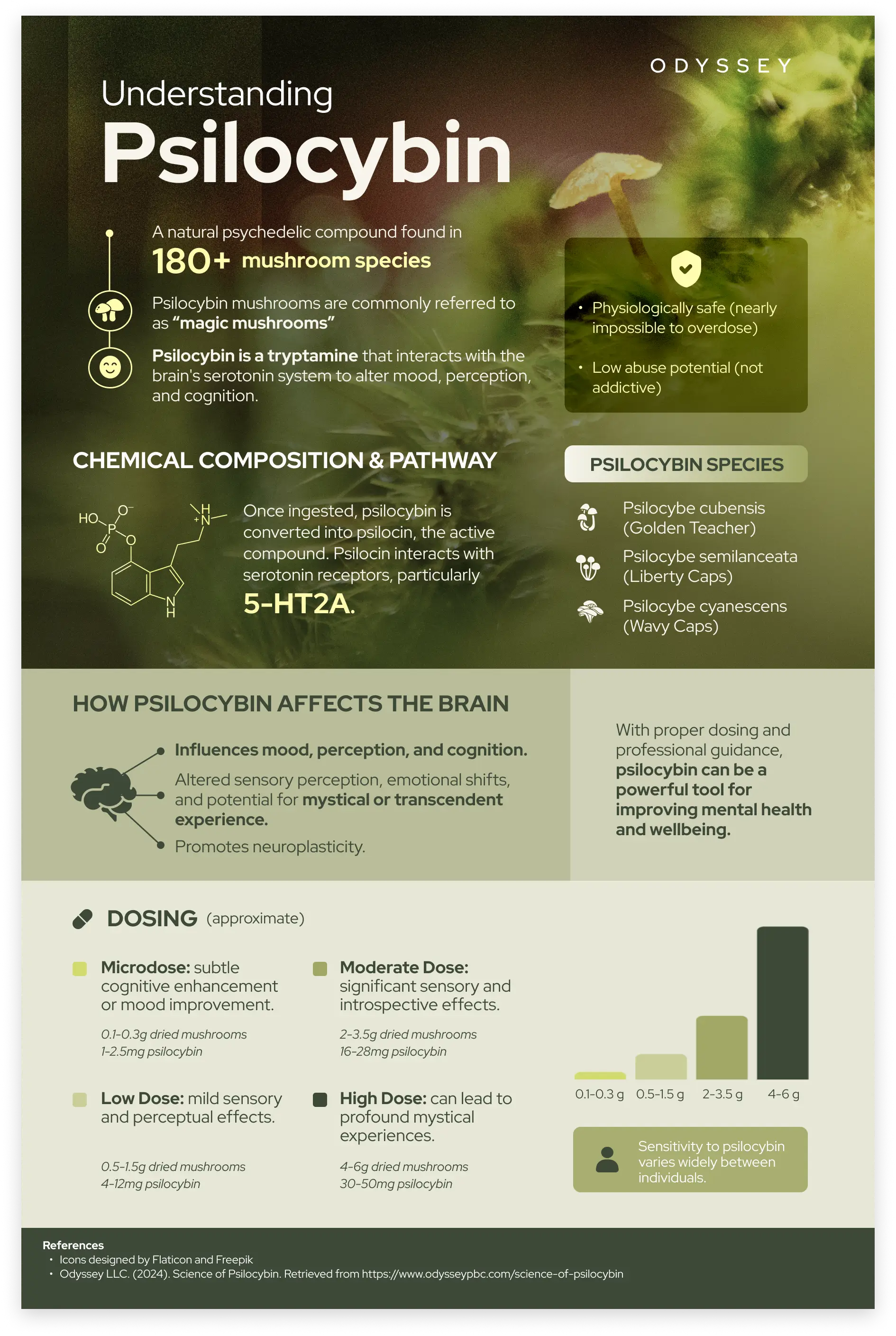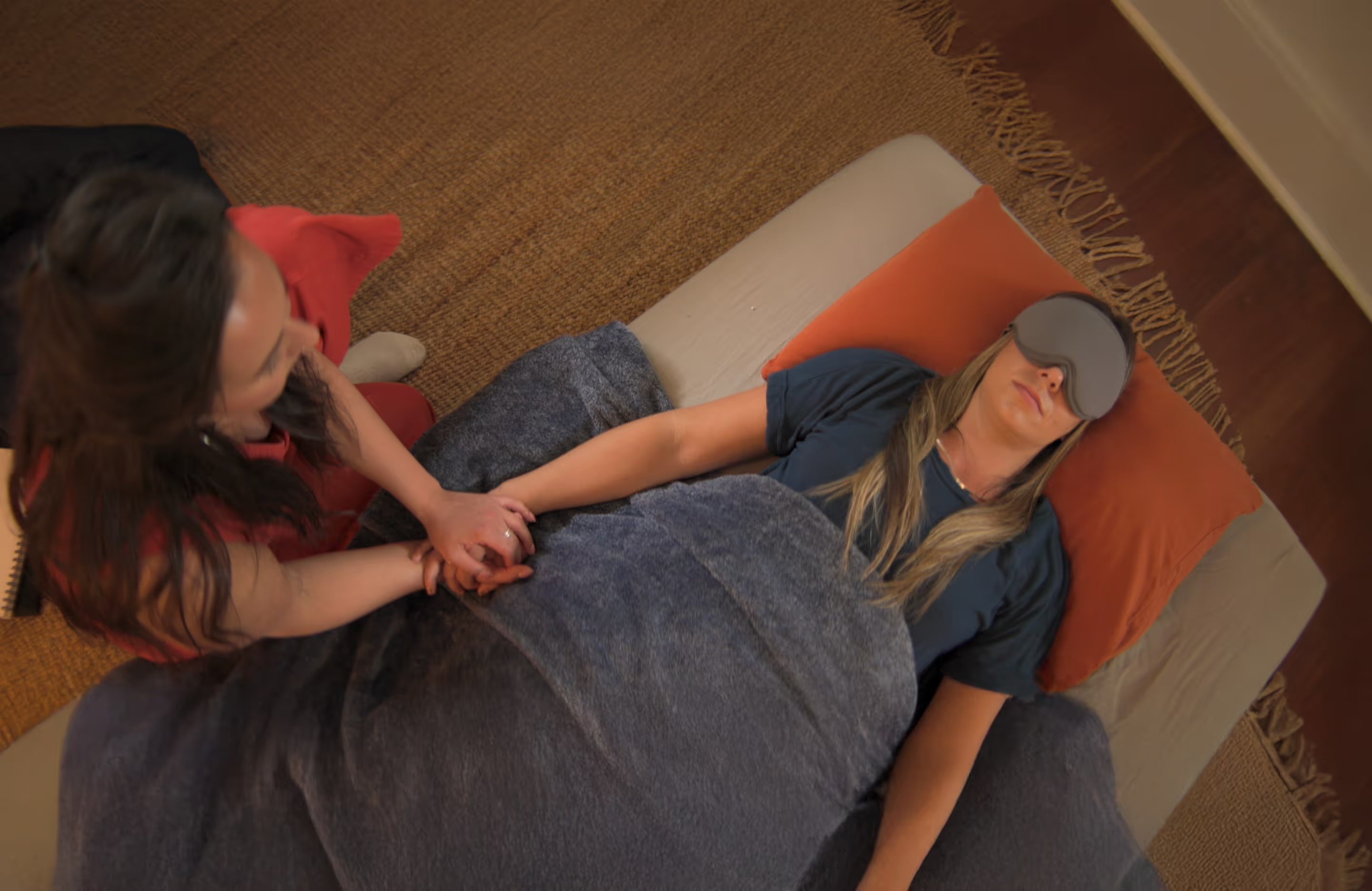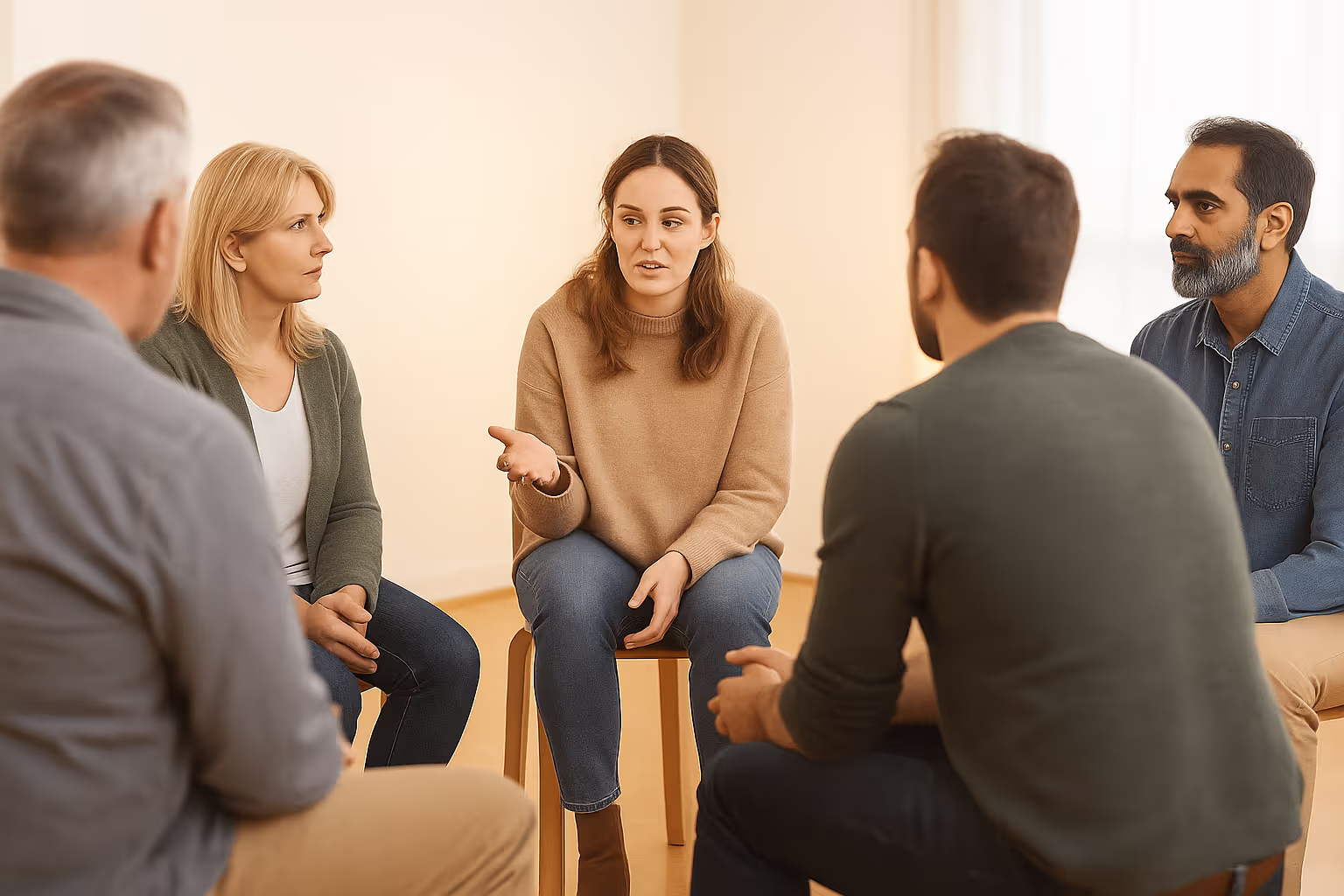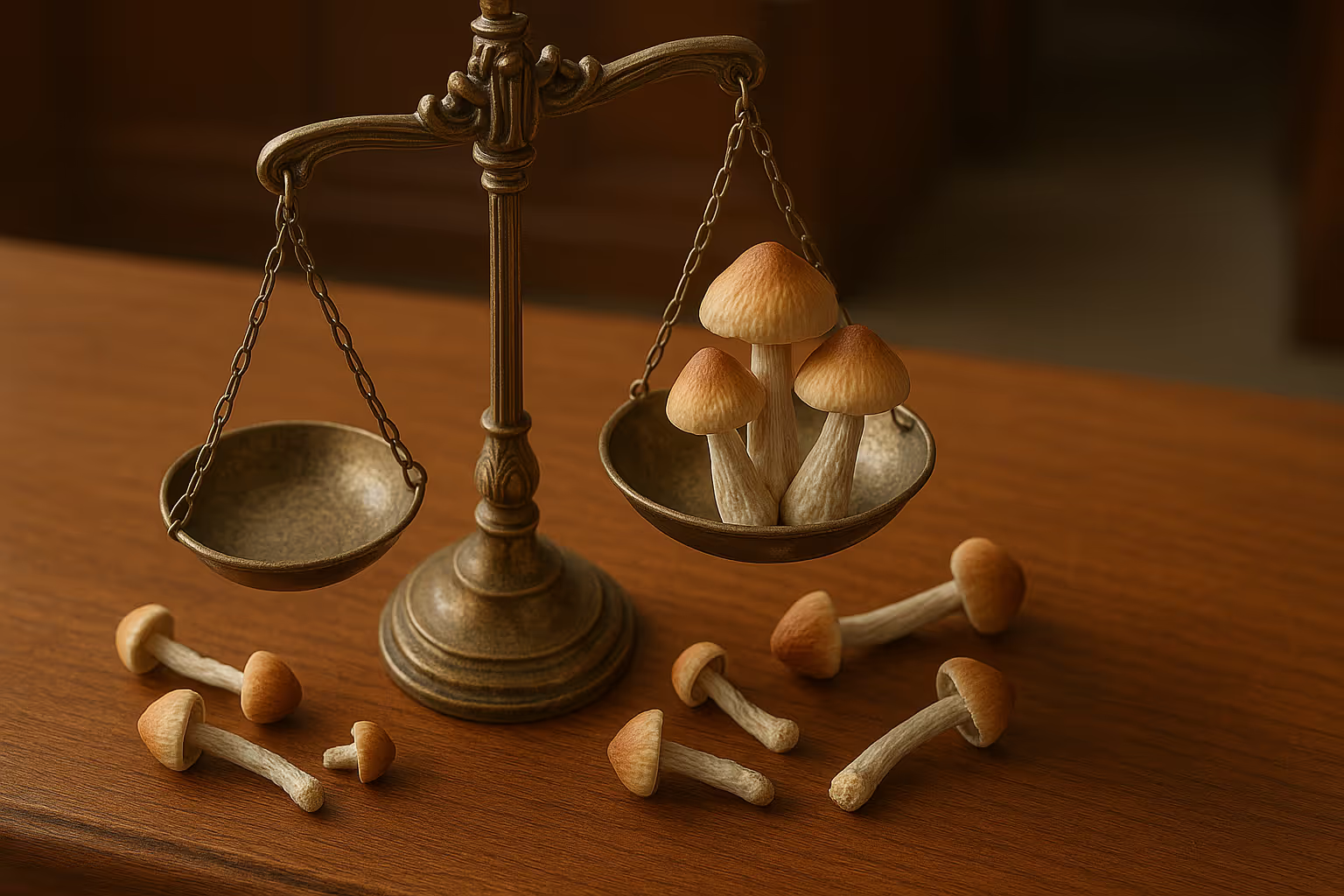Psilocybin in Massachusetts: Everything You Need to Know

Psilocybin, the naturally occurring psychedelic compound found in certain species of mushrooms, is gaining increasing attention for its potential therapeutic benefits. While states like Oregon and Colorado have made significant strides toward decriminalization and legalization, Massachusetts is also seeing growing interest in psilocybin.
As public opinion shifts and scientific research continues, understanding the varying standing of psilocybin from state to state is more important than ever. Whether you're curious about psychedelic legal status, potential health benefits, or how state regulations are evolving, this guide will provide you with everything you need to know about psilocybin in Massachusetts.
What is Psilocybin (“Magic Mushrooms”)?
Psilocybin is a naturally occurring psychedelic substance found in psilocybin mushrooms—often known as ‘magic mushrooms’—that is gaining conversational traction in the context of its emerging therapeutic potential. This prodrug is biologically inactive until the body metabolizes it into psilocin, which interacts with the brain’s serotonin receptors to produce profound alterations in perception, mood, and cognition. In the past, this healing capacity has drawn equal parts controversy and curiosity.
For centuries, indigenous cultures have used these psychedelic plants as sacred tools for recovery and spiritual exploration. Today, modern science explores their therapeutic usage in psychedelic-assisted therapy, offering promising alternatives to treat depression, anxiety, post-traumatic stress disorder (PTSD), and other treatment-resistant mental health conditions. As our healthcare landscape evolves, psilocybin is increasingly viewed as a complement to traditional therapies rather than a detriment to public safety.
In clinical settings, psilocybin is typically administered in controlled environments with trained professionals to monitor and guide the experience. While psilocybin is still classified as a Schedule I substance under federal law in the United States, ongoing research and evolving state-level regulations are contributing to a growing interest in its potential therapeutic uses.

Psilocybin’s Historic Emergence in Massachusetts
To understand the legal status of psilocybin in Massachusetts, it’s important to recognize the state’s unique history with psychedelic substances.
In the early 1960s, Harvard University played a pivotal role in exploring psychedelic medicine through the controversial Psilocybin Project, led by psychologist Timothy Leary and assistant Richard Alpert (later known as Ram Dass). The researchers administered psilocybin to graduate students and volunteers from the local community, including prominent figures like poet Allen Ginsberg. However, their methods, which included taking the substances alongside participants, drew criticism from both Harvard faculty and the broader academic community.
By 1962, concerns about the ethical conduct of the research, especially the inclusion of undergraduate students, led to a major scandal. Alpert was fired in 1963, and Leary’s contract was not renewed, effectively ending the project. Despite its abrupt conclusion, the project played a pivotal role in bringing psychedelics into the public eye, influencing both the academic discourse on consciousness and the 1960s counterculture movement.
Psychedelic Legislation & Legal Status
Today, psilocybin’s legal standing in Massachusetts remains an indeterminate crossroads. Despite growing evidence supporting its therapeutic use in psychedelic-assisted therapy, psilocybin continues to be illegal under state law. Additionally, it is still federally classified as a Schedule I substance, a designation that suggests high abuse potential and no medical use.
In the meantime, psilocybin-assisted therapy is legal in Oregon, and Colorado expects availability later in 2025—find the best legal, scientifically-grounded, and professionally-guided psilocybin experience for you here.
Not all is stagnant in Massachusetts: recent legislative debates and local policy changes have sparked new conversations about psychedelic drugs and their role in mental healthcare. Massachusetts has seen shifts in focus over the past few years, with increasing public support for natural psychedelic substances as part of a broader move toward comprehensive mental health options. Question 4, proposed in November 2024, represented a culmination of this vocal advocacy.
Question 4: The November Ballot Initiative
In November, Massachusetts voters considered a landmark ballot question—commonly referred to as Question 4—which proposed limited legalization and regulation of natural psychedelic substances like psilocybin. Created by Massachusetts for Mental Health Options (MMHO), this initiative aimed to:
- Establish a regulatory framework for psychedelic therapy,
- Create a five-member commission to oversee licensed therapy centers,
- Permit personal use and controlled cultivation of magic mushrooms.
Proponents cited the inefficacy of traditional treatments in curbing service-related trauma and end-of-life anxiety. An opposition group, the Coalition for Safe Communities, recognized psilocybin’s potential in these facets, but warned that the measure went “way too far way too quickly.” Ultimately, Massachusetts voters rejected the measure with a majority of 56.84 percent, largely due to concerns over public safety and accelerated change. However, its structured and reasoned approach did not pass unheard; it highlighted the curative potential of state-licensed, psychedelic-assisted therapy, paving the path for future proposals of the same vein.
Local Decriminalization vs. Statewide Legalization
Even as state law remains presently unaffected, Massachusetts cities such as Somerville, Cambridge, and Northampton have already decriminalized psilocybin. These local efforts signal a growing acceptance of psychedelic drugs by treating the possession of psilocybin mushrooms as a low enforcement priority. Residents in these areas now benefit from a policy that reduces the legal risks associated with personal use of these psychoactive plants. However, while local decriminalization reduces the black market dynamics around these substances, it does not provide a legal pathway for psychedelic-assisted therapy.
Legislative Developments in 2025
Following the setback of Question 4, advocates have continued working to expand psilocybin reforms through legislative proposals. H.2203 and H.1624, two prominent bills in 2025, exemplify this renewed effort:
H.2203: Expanding Access to Psilocybin Therapy
- Objective: This bill aims to establish a regulated psilocybin therapy program in Massachusetts, aligning with models seen in Oregon and Colorado.
- Focus: It would permit licensed therapy centers to offer psychedelic assisted therapy under professional supervision, emphasizing guided psychedelic experiences that combine modern science with integration therapy for mental health treatment.
- Ultimate Goal: To provide safe, evidence-based psychedelic therapy for treatment resistant depression, anxiety, and other mental illnesses.
H.1624: Decriminalization and Research Expansion
- Objective: This bill proposes decriminalizing small-scale possession of psilocybin and incentivizes research into the therapeutic potential of psychedelic substances.
- Focus: By reducing penalties for possession and redirecting law enforcement priorities, H.1624 also supports studies at institutions like Massachusetts General Hospital and independent research centers to explore new psychedelic medicine protocols.
- Significance: This initiative promotes mental health treatment innovation while ensuring that psychedelic therapy remains accessible as a complement to traditional therapies.
These legislative developments underscore Massachusetts' evolving approach to mental healthcare and highlight the state's efforts to incorporate psychedelic substances as part of a broader strategy for healing and well being.
Ongoing Research and Therapeutic Applications
Research at renowned institutions like Mass General continues to shed light on the therapeutic benefits of psilocybin. Clinical studies are increasingly focused on:
- Psychedelic assisted therapy for treatment resistant depression and anxiety,
- Psychedelic therapy for post-traumatic stress disorder (PTSD), with evidence suggesting significant improvements in symptoms,
- The use of ketamine-assisted psychotherapy as a complementary approach in mental health treatment,
- Exploring integration therapy methods—such as intention setting—to help patients incorporate insights from their guided psychedelic experience into everyday life.
Modern science is also examining how psilocybin, a prime example of psychedelic plants, promotes neuroplasticity and may lead to breakthroughs in mental health issues and psychotherapy.

Potential Benefits and Risks
When evaluating psychedelic medicine options like psilocybin, it’s especially critical to weigh the potential therapeutic benefits against the risks:
Benefits:
- Long-Lasting Mental Health Improvement: Studies indicate that psychedelic assisted therapy can provide enduring relief for conditions such as depression, anxiety, and post traumatic stress disorder.
- Enhanced Neuroplasticity: Psilocybin may stimulate brain changes that support recovery from mental illness and contribute to overall well being.
- Alternative to Traditional Therapies: For patients unresponsive to traditional therapies, psilocybin offers a promising, innovative approach.
Risks:
- Psychological Distress: Unsupervised use may result in intense experiences that can exacerbate underlying mental health issues.
- Drug Interactions and Legal Risks: As psilocybin remains illegal in Massachusetts, users risk legal consequences and potential conflicts with other psychedelic drugs regulations.
- Adverse Reactions: Particularly among patients with pre-existing conditions, the lack of professional guidance could increase risk.
A balanced approach—emphasizing licensed therapy centers and guided experiences—is vital to mitigating these risks.
Read more: The Safety of Psilocybin Therapy
How to Access Legal Psilocybin Therapy
Currently, Massachusetts residents do not have access to legal psilocybin therapy programs within the state. However, individuals interested in psychedelic assisted therapy have alternative routes:
- Travel to States with Established Programs: States like Oregon and Colorado offer regulated psychedelic therapy experiences.
- Participate in Clinical Trials: Mass General and other research centers are continuously exploring psilocybin’s therapeutic potential.
- Advocate for Change: Engaging with organizations that promote mental health options and policy reform can help shift state law.
- Future Opportunities with Odyssey: Platforms offering guided psychedelic experiences and retreats are preparing to serve Massachusetts residents as legislation evolves. Sign up for first access to legal professionally guided psychedelic sessions and retreats.
Conclusion
The landscape of psilocybin in Massachusetts is rapidly evolving. Despite its current status as an illegal psychedelic drug at the federal level, ongoing legislative initiatives—especially bills like H.2203 and H.1624—signal a potential shift toward regulated psychedelic assisted therapy. With roots that trace back to pioneering studies at Harvard University and early experiments with magic mushrooms, the journey of psilocybin in Massachusetts encapsulates a broader transformation in mental healthcare.
Today, research from the likes of Mass General continues to validate the therapeutic benefits of psilocybin for treating depression, traumatic stress, and other mental health crises. As residents, patients, and advocates push for change, the ultimate goal is to blend modern science with safe, effective, and accessible psychedelic therapy—offering new hope for mental health treatment and healing.
Frequently Asked Questions (FAQs)
Is psilocybin legal in Massachusetts? No, psilocybin remains illegal under current state law. However, local decriminalization efforts and legislative proposals, including recent bills like H.2203 and H.1624, reflect growing support for its therapeutic use in psychedelic assisted therapy.
What was the November ballot question about? The ballot (Question 4) proposed legalizing and regulating natural psychedelic substances for mental health treatment. Although it was ultimately rejected, the ensuing debate has spurred further legislative efforts in Massachusetts.
How can I access psilocybin therapy? While there are no licensed therapy centers in Massachusetts offering psilocybin yet, residents can explore clinical trials, travel to states like Oregon or Colorado, or sign up to be notified first about future opportunities with Odyssey.
What are the potential benefits of psilocybin for mental health? Research shows that psychedelic-assisted therapy using psilocybin can significantly improve treatment-resistant depression, anxiety, and PTSD. Its integration in psychotherapy stems largely from its ability to enhance neuroplasticity and alter states of perception.
Are there risks involved with using psilocybin? Yes, unsupervised use of these psychedelic drugs can lead to psychological distress and other adverse effects, especially without professional guidance. It is crucial to use these substances in controlled, clinical settings to minimize risk.

.svg)









.svg)